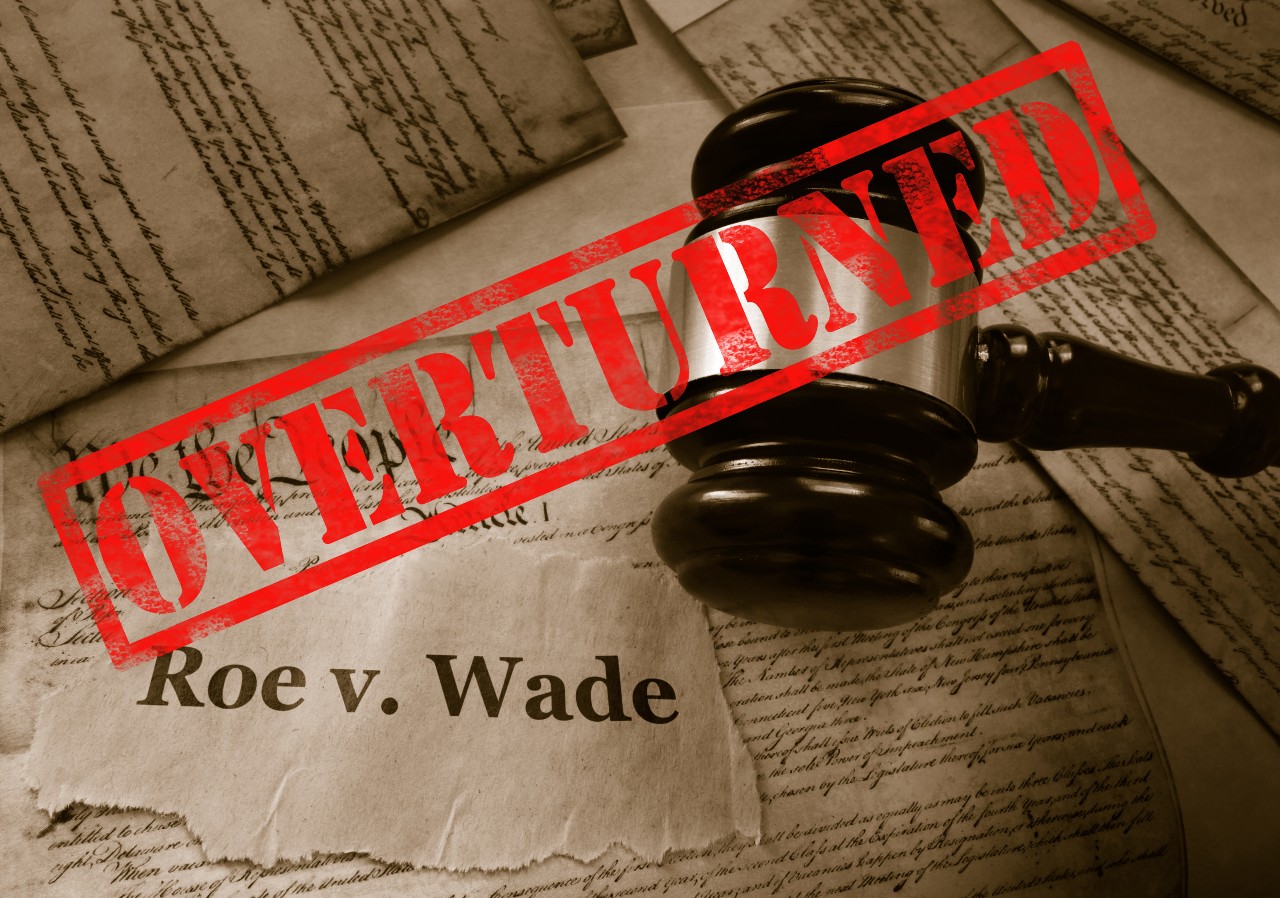What should employers consider in light of the Supreme Court decision overturning Roe v. Wade.
In early May, the country was shocked by a 98-page leaked draft of the Supreme Court’s upcoming decision in Dobbs v. Jackson Women’s Health Organization. The draft revealed the Supreme Court’s plan to overturn the landmark 1973 Roe v. Wade decision that created a constitutional right for women to obtain an abortion. Despite foreshadowing what was to come, hope remained that the draft would not become reality. Unfortunately, on June 24th, the country was left reeling when the Supreme Court handed down its finalized decision in Dobbs v. Jackson Women’s Health Organization to overturn Roe and return the issue of and regulation of abortion, including other related services to elected state representatives.

With the Dobbs decision finalized, the current abortion legislation landscape is as follows: 14 states have bans in effect or expected to become effective soon (this includes 2 states that currently have restrictions in place, but is expected to implement a full ban), 2 states with bans in place that have been blocked by judicial action, and 7 states that have or will have restrictions in place to obtaining an abortion in place, while 29 states currently permit and protect abortions and abortion-related services. Politics aside, limiting access to reproductive health care has far greater implications than realized in the workforce given its effect on gender equality and the ability for women to fully participate and advance in the workforce. Research clearly shows that employers have recognized the business value in retaining, supporting, and attracting female talent. Indeed, women now comprise over half of the workforce and are represented across industries in a variety of diverse roles, from the frontline to the C-suite. In addition, employers have made public commitments to diversity, equity, and inclusion efforts, which includes addressing a whole host of issues that impact female workers. But few (if any) have considered access to and supportive policies related to reproductive healthcare benefits as an equitable workplace issue, until now. A national survey from the research firm of Perry Undem, 80% of today’s top leaders consider women’s reproductive healthcare access an important part of women’s rights and gender equity. With the rise of hybrid work, many employers have employees working across states who will now have different access and rights to abortion services. Therefore, employers may want to address these issues now. The issues are complicated both legally and politically. And there is no one size fits all approach to address these issues. But here are a few suggestions.
In light of Dobbs, what can employers do to promote an equitable workplace internally?
- Assess Employer’s Health Benefits. Employers should be aware of the types of reproductive health care services that are offered, identify any obstacles employees may face to obtaining such services, and address any gaps there may be with current benefits offered and what may be needed.
- Allow Employees to Work in States that Protect Access to Reproductive Health Services. Employers can expand their remote work policies to allow employees who work in certain states with less access to reproductive healthcare services to be based in other states where such access is protected. Similarly, employers with multiple offices may support employee mobility and provide opportunities for employees to relocate work in states where access to reproductive healthcare services is protected.
- Cover Travel Expenses for Employees to Access Reproductive Health Services. Employers who have offices in states where access to reproductive healthcare services is limited may consider reimbursing employees for the cost of traveling to other states for reproductive health services that they may need. Some employers may even consider offering travel expenses for the employee’s spouse or support person. If the employer’s current health plan does not allow expansion of reproductive health services, then the employer may want to consider additional coverage outside of the health plan.
- Voting for State Representatives Who Will Protect Access to Reproductive Health Services. Encourage and allow employees to take time off during work hours to vote. Because regulations governing abortion and abortion services will now be left to state elected representatives, it is important to allow employees time off to vote for candidates who align with their values, goals, and/or beliefs.
What can employers do to promote an equitable workplace externally?
- Support Relief Efforts. Employers can provide logistical, financial, or volunteer support to organizations that are advocating or assisting employees who need assistance navigating the reduction in access to reproductive healthcare services.
- Policy at the State and Federal Level. Employers can leverage their connections and relationships with policymakers, business associations or other organizations to voice their concerns over the impact Dobbs will have on the workforce and economic costs of restrictions to reproductive healthcare services.
- Evaluate Your Donations. Employers should evaluate donations to political candidates and consider their stance on access to reproductive healthcare services.
Are there any legal considerations for employers?
Although there is no federal law that prevents the expansion of reproductive health services, employers should be mindful of their local and state laws as some states banning abortions (e.g., Texas and Oklahoma) have begun to target those who aid and abet others in obtaining unlawful abortions. Employers who expand their reproductive health services or cover expenses for their employees to travel to other states with protected access to reproductive health services may expose their organization to legal risk and liability for aiding and abetting.
In addition, whether an employer supports the Dobbs decision or not, employers should also be mindful of the federal Pregnancy Discrimination Act (“PDA”), which prevents an employer from pressuring an employee to have or not to have an abortion. In addition, the PDA takes a step further and prevents employers from using or considering an employee’s decision to have, not have, or contemplate having an abortion as the underlying reason to take adverse action or make an adverse employment decision against the employee.
* * * *
Although not an exhaustive list of what employers can do internally and externally, doing so will enable employers to continue to attract more female talent and support and retain existing female employees which directly contribute to an equitable workplace.
Also on Sharpen Your FOCUS: Perspectives on Workplace Diversity
Sharpen Your FOCUS offers timely insights into the legal and practical dimensions of DEI, accessibility, and belonging in the workplace. Drawing from both employer and employee perspectives, we explore emerging topics, shifting legal interpretations, and the real-world impact of inclusive leadership. Thanks for joining the conversation.


















